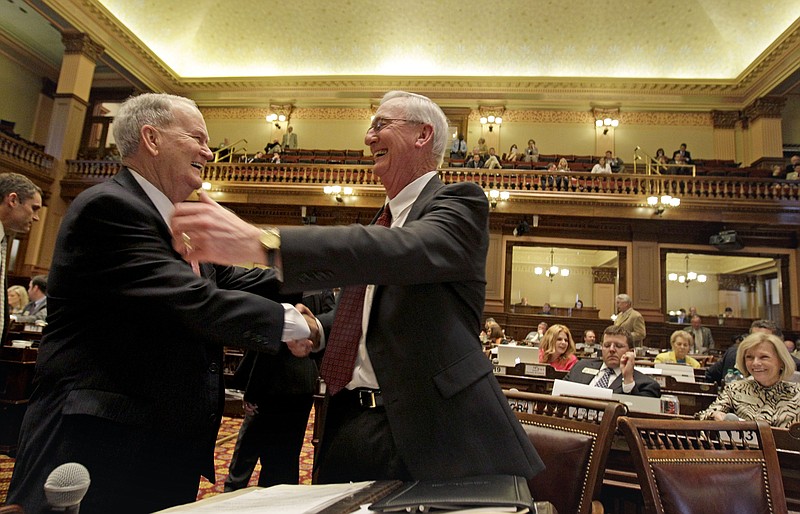RAY HENRY, Associated Press
ATLANTA - Despite calls to slow down, House lawmakers on Tuesday passed legislation that would change Georgia's tax code to allow married people to keep more income and phase out property taxes on motor vehicles as people buy new or used cars and trucks.
The legislation, approved 155-9, blazed through the House in just over a day, an unusually quick pace that reduced the opportunity for critics to derail it. A combination of Democrats and tea party groups last year sunk a much broader proposal to change the state's tax code, arguing it would have increased the tax burden on the middle class.
This year, House lawmakers focused on narrower changes. House Speaker David Ralston, a Republican, promised more tax changes in the coming years, including an examination of tax rates for individuals.
"You don't always get what you want the first time you ask for it," Ralston said. "But I think this is a good and substantial beginning and it's a beginning that I'm very proud of."
The legislation, supported by Republican Gov. Nathan Deal, now heads to the state Senate, which could vote as early as Thursday. The package would give tax cuts to ailing manufacturers and to companies that bring new jobs to Georgia and create sales tax holidays for residents buying back-to-school and energy-efficient goods. Those perks cost money. Budget analysts estimate the tax breaks will create a roughly $50 million deficit next year, a gap equal to less than 1 percent of the current budget.
The rushed pace alienated some conservative and tea party groups normally friendly to tax cuts.
Julianne Thompson, the statewide coordinator of the Tea Party Patriots, said at a news conference that lawmakers should put off a vote until residents can read and analyze the complex tax proposal. The legislation was introduced Monday and amended Tuesday morning, just hours before it passed.
"There is something fundamentally wrong with this process," Thompson said.
Kay Godwin, co-founder of Georgia Conservatives In Action, also asked lawmakers to take a pause.
"We need bold reform and we're perfectly willing to stand with them to get this done," Godwin said. "But we got this bill yesterday afternoon. We had less than 24 hours to look at it before it's going to be voted on. There are bits and pieces of it that are simply not acceptable, but we should have time to sit down and talk about it before they're pushed through."
Ralston rejected their criticism. He said the bulk of the legislation had been written in various forms for more than a year.
"People that complain about the process on this bill simply hadn't read it and hadn't done their homework," Ralston said. "I don't ever remember a process more thorough, more painstaking than this one."
Under the plan, GOP lawmakers would eliminate the annual property tax paid on motor vehicles purchased after March 1, 2013. Instead, motorists would pay a one-time fee based on the vehicle's value that tops out at 7 percent in 2015. People who purchased their cars and trucks before the proposed change in the law would continue paying annual property tax bills until they buy another new or used vehicle.
Married couples could claim $1,000 to $2,000 more in money exempt from the state income tax under the plan.
In a sign of the last-minute push, lawyers worked into early Tuesday morning to revise the bill and address concerns raised by county governments. The legislation would phase out the sales tax that manufacturers pay on the energy used to produce their goods, a move that would align Georgia with neighboring states. But that decision would also eliminate a source of income that local governments use to support schools and other services.
Under the bill, local governments have the option to impose a new tax replacing the income they lose from the existing tax on manufacturers.
Officials at the Association County Commissioners of Georgia said local governments have little flexibility in their budgets. Property values plummeted during the recession and are still sliding, meaning counties are collecting less money from property taxes to fund their services.
"It's getting to the point of, where do you cut anymore?" said Clint Mueller, the association's legislative director.
